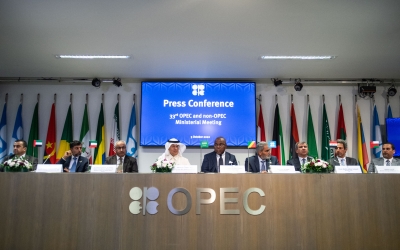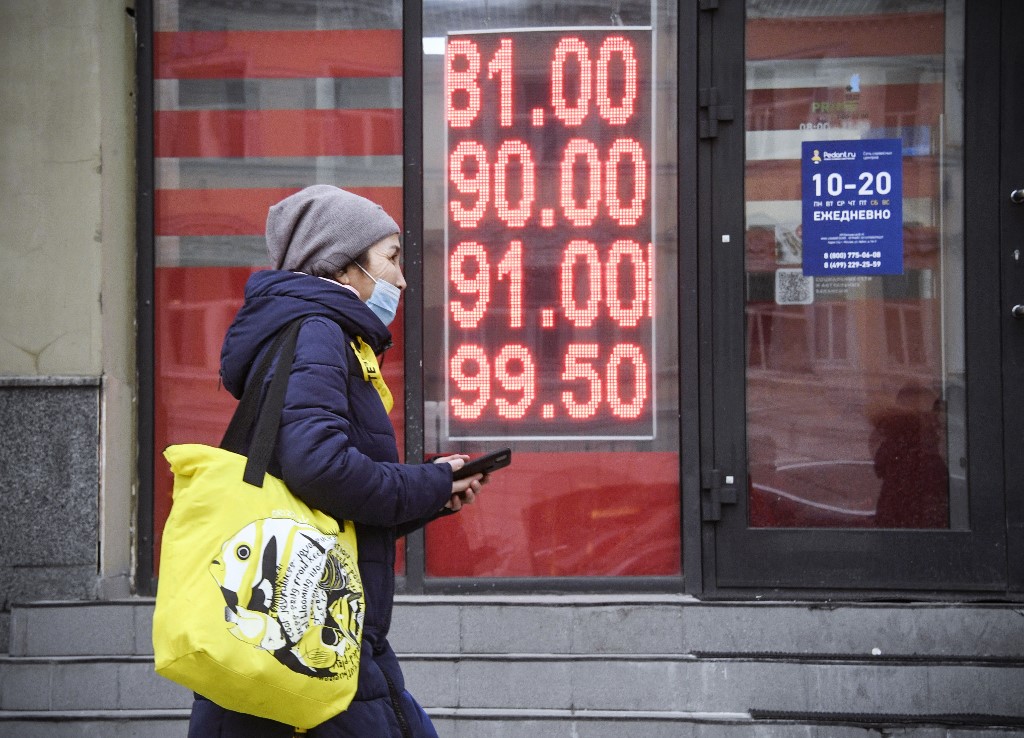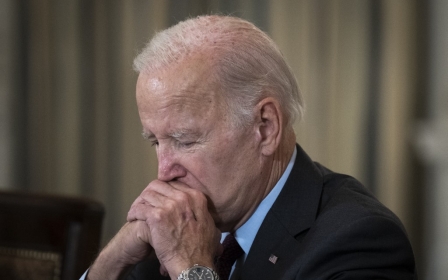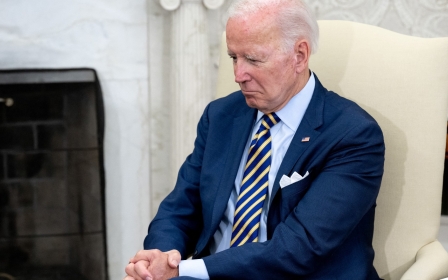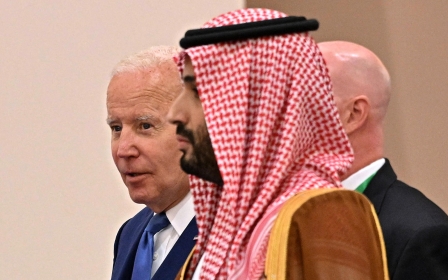Opec+ oil cut: The birth pangs of a new world order
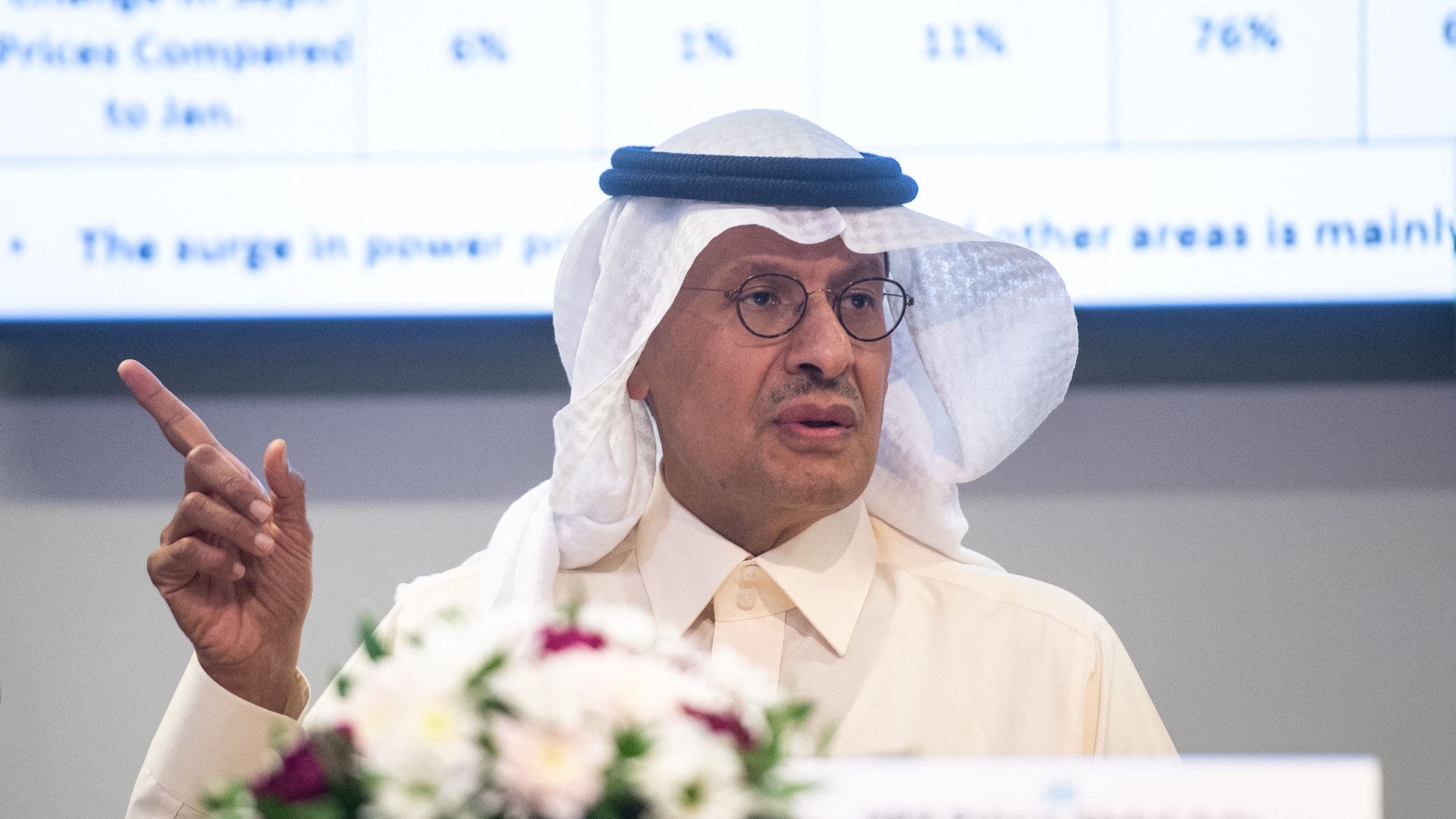
A non-American has cast his vote for the 8 November US midterm elections ahead of their scheduled date: Saudi Crown Prince Mohammed bin Salman.
This is the tempting conclusion to draw from the recent decision by Opec+ to cut oil production by two million barrels a day, triggering a price increase. Determined to push gas prices down and deprive Russia of added revenue for its invasion of Ukraine, the Biden administration had begged Saudi Arabia to delay the cut - but to no avail. The decision has caused the biggest US-Saudi crisis since Washington's signing of the Iran nuclear deal in 2015.
Riyadh is apparently set on another course. It intends to join Brics and is increasing its cooperation with China, including through its unprecedented consideration of trading oil for yuan instead of dollars. The UAE is also making moves, with Abu Dhabi Crown Prince Mohammed bin Zayed recently visiting Moscow, and his energy minister saying Russia is irreplaceable in the oil market.
The US-Saudi crisis is another textbook example of what the US should not do if it wants to avoid completely alienating the rest of the world
All these gestures are red capes waved in front of the American bull. The US has lost control of its traditional Gulf allies. In Washington, these recent moves were seen as a gross betrayal by Gulf allies whose security US forces continue to secure - the worst type of stab in the back.
Apart from the political landscape, however, the economic rationale for the oil output decision could be seen as justifiable, and not just spurred by narrow national interests. A global economic slowdown could reduce oil demand and increase price volatility, thus rationalising a supply cut.
New MEE newsletter: Jerusalem Dispatch
Sign up to get the latest insights and analysis on Israel-Palestine, alongside Turkey Unpacked and other MEE newsletters
The decision is also consistent with an unwritten pact between the US and Saudi Arabia in place since 1945: The US protects the kingdom and the latter guarantees regular oil flow while protecting against volatility. But since the 2015 nuclear deal and Washington's unwillingness to respond after Saudi oil facilities were attacked in 2019, the US has not been perceived as an effective protector.
The 'nuclear option'
As things stand, US President Joe Biden is reevaluating his country's military cooperation with Riyadh, Congress is looking at halting weapons sales and there is talk of what in the oil world is seen as the "nuclear option": the so-called Nopec bill, which would allow the seizure of the assets of Opec governments. Saudi Arabia alone is thought to have $1 trillion worth of investments in the US.
Nevertheless, the vehement reaction of the establishment in Washington reveals its difficulty in adjusting to a new world order.
The shale revolution has made the US the world's top oil producer. Its reliance on Gulf oil has thus decreased, but its interest in avoiding price volatility has not. Today's reality is that oil output and prices are managed by Russia and Saudi Arabia, who push their converging interests through the Opec+ format, an enlarged producer's group comprising around two dozen nations. Bullying Opec+ is thus neither easy nor advisable.
The war in Ukraine and the global economic war on Russia are both creating new dynamics and reviving old ones. The G7 should not be surprised if its repeated attempts to place caps on oil and gas prices are perceived by Opec+ as a dress rehearsal for an energy consumers' cartel. The real irony is that in an era characterised by the transition to a green economy, all major powers are stretching every sinew to dominate the fossil-fuel market.
The US-Saudi crisis is another textbook example of what the US should not do if it wants to avoid completely alienating the rest of the world. Washington and its allies should metabolise a tectonic shift: American and European problems are no longer considered the problems of the whole world.
Some historical perspective might be helpful in better understanding this shift. In 1971, the US unilaterally ended the dollar's convertibility to gold, marking the end of the decades-old Bretton Woods system. The dollar's position gave the US what former French President Charles De Gaulle called an "exorbitant privilege". The dollar became the global reserve currency for trade and finance, and for raw materials and commodities pricing.
Globalisation has caused world trade and finance to grow exponentially, alongside global demand for the dollar. The US has then been allowed to run huge deficit and debt almost for free, while denying any other country the chance to convert its own dollar reserves in gold, and leaving them only the option to subscribe to US Treasury bonds.
Austerity programmes
For the rest of the world, there were heavy fiscal adjustment and austerity programmes dictated by the International Monetary Fund to keep debt under control, in accordance with the infamous Washington Consensus dogma. This has been the financial pillar of the US-led rules-based world order - and not a fair one, to say the least.
The Global South, led by Brics and the Shanghai Cooperation Organisation, is sick of this financial arrangement, in which the dollar is often weaponised. It is thus slowly de-dollarising and distancing itself from New York and London clearinghouses. While this process is still in its infancy, it is certainly underway.
The US, a leading producer of liquified natural gas, is charging astronomical prices for the gas it sells to its European allies. Why should Opec+ care about American consumers' grievances at the gasoline pumps, when the US is so indifferent towards its own allies?
The US Federal Reserve's policy of raising interest rates to lower inflation is making the dollar's value soar. This is causing problems for all world economies due to the increased costs of supplies. Again, why then should Opec+, and by extension the Global South, consider American demands on oil cuts or on sanctioning Russia?
When EU High Representative Josep Borrell issues a wretched statement describing Europe as a garden and the rest of the world as a jungle, why should the jungle pay attention to European and American concerns, on the Ukraine conflict or anything else? Why should the jungle be sensitive to western demands to punish Russia for acquiring Ukrainian territories by force, when similar practices by other countries are condoned and remain unpunished?
Binary thinking
For those still trapped in binary thinking, framing world politics merely as an us-versus-them affair, such considerations are not meant to deny the solid autocratic credentials of the Russian, Saudi or Chinese leaders, nor to minimise the Ukraine tragedy - but rather to highlight a rising, broader global perspective.
When US and European leaders and opinion-makers reject such objections by emphasising that Ukraine should get priority because it is in the "civilised" part of Europe, they are further widening the cultural divide between the West and the Global South.
Let us assume that the Saudis really wished to influence the US economy in order to damage Biden. Why should such a prerogative be denied to them and allowed to former Israeli Prime Minister Benjamin Netanyahu?
Democracy appears more and more as an ideological travesty to justify geopolitical agendas
For decades, after all, the "international community" has accepted another unwritten principle of the US-led rules-based world order: the notion that any US president, at his will, can decide who is entitled to rule around the world.
We are currently experiencing the birth pangs of a new world order, a multipolar one. The US and its allies are trying to prevent this by sticking to the current, no longer sustainable, unipolar model. They are misleadingly portraying the current situation as an inflection point, where the future world order will depend on the outcome of an ongoing epic confrontation between democracies and autocracies. They have just received their freshly printed handbook to manage it: the new US national security strategy, released earlier this month.
Democracy appears more and more as an ideological travesty to justify geopolitical agendas.
The views expressed in this article belong to the author and do not necessarily reflect the editorial policy of Middle East Eye.
Middle East Eye delivers independent and unrivalled coverage and analysis of the Middle East, North Africa and beyond. To learn more about republishing this content and the associated fees, please fill out this form. More about MEE can be found here.



